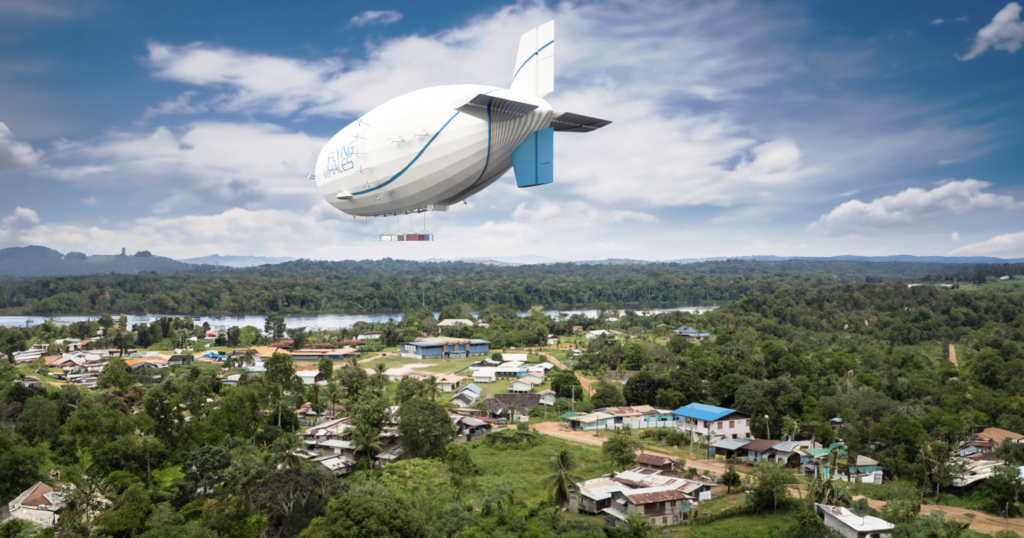

Feedback on the Critical Design Review (CDR)
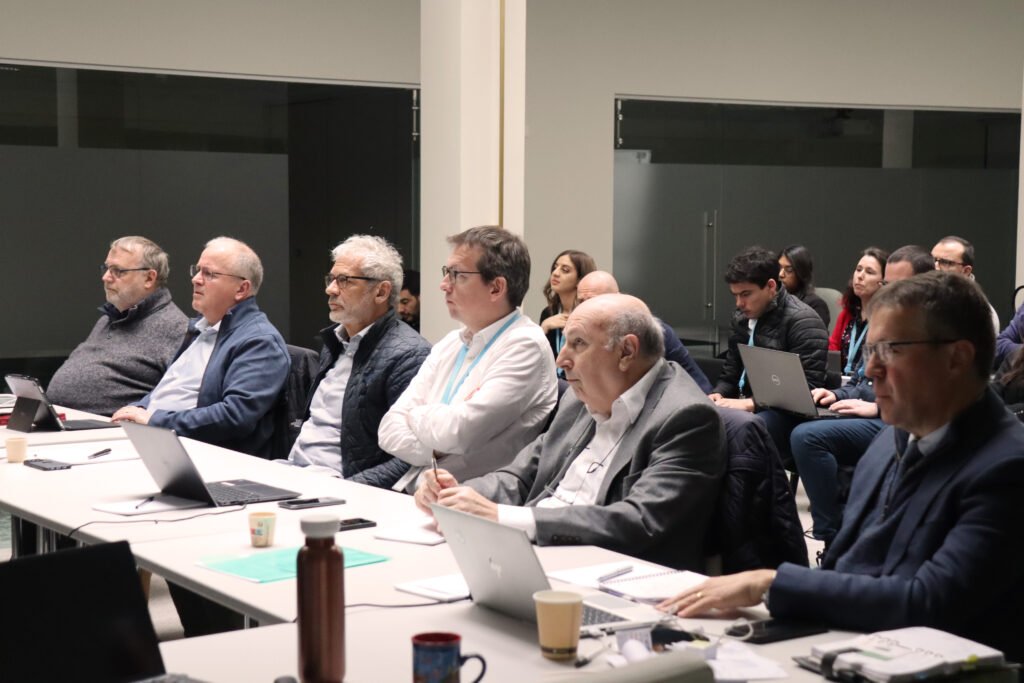
Origami Test
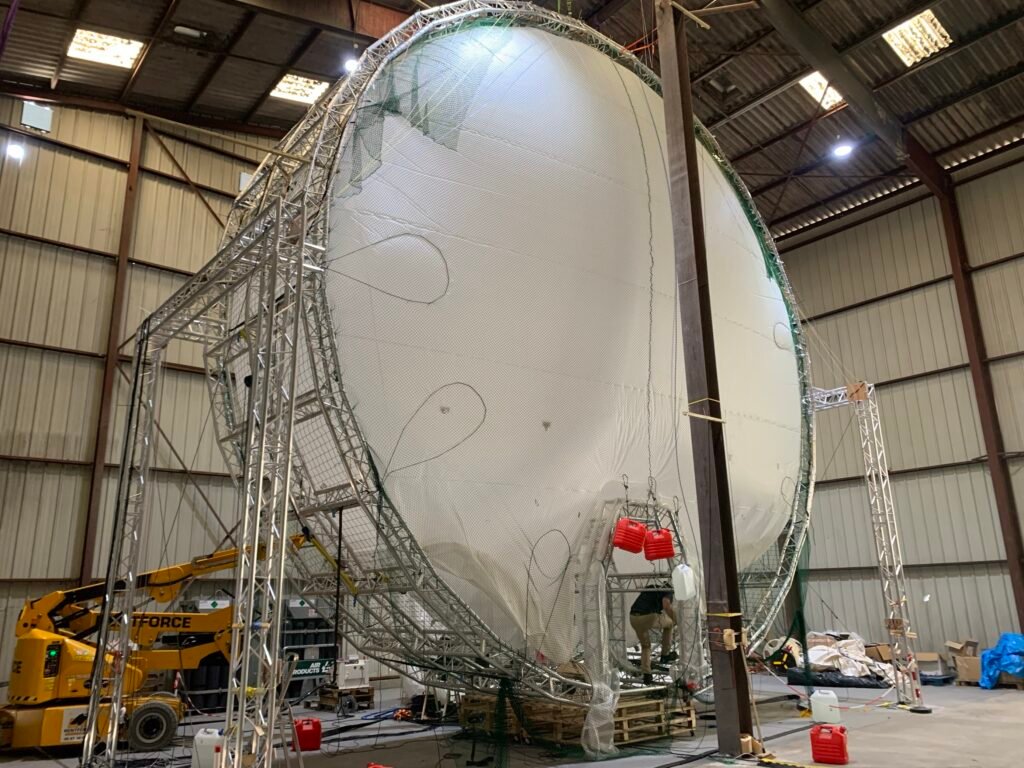
Since early April, the Manufacturing teams, supported by the Test team, leads innovative test in Sadirac, near Bordeaux.
Named “Origami Test”, it aims to explore and validate:
the processes of folding / unfolding, integration and filling of our helium cells*
the processes of maintenance and the reinstallation concepts
the processes of helium management both in installation and maintenance phases.
To that end, the teams, supported by our partner Hemeria, have worked hard during ten days to assemble a representative miniature version (scale 1:5) of a section of our airship.
The latter, installed inside a 12m-high hangar, consists of an aluminium reproduction of a section of the LCA60T’s carbon structure, on which a helium cell and support nets are fitted on each side and around the perimeter of the structure. The cells and nets were made by Hemeria, while the structure was designed by FLYING WHALES.
The whole has been equipped with numerous force sensors, spread out on different joints of the structure, allowing to measure precisely the stresses to be applied on the cell during its installation.
The feedbacks of the test are very positive!
*Learn more about LCA60T helium cells : https://lnkd.in/d-ufWgZY
Iron Whale Test

Our very first integration bench is up and running in Suresnes!
The “Iron Whale” enables us to test most of the airship’s low-voltage electrical equipment.
During these tests, we check that our equipment works correctly in isolation and then together, in an integrated way. They are connected to each other, just as they will be inside the airship.
The test bays can be used to power up, simulate or stimulate equipment by injecting mission profiles to simulate a complete flight or load exchange, for example, as well as various failure cases to validate the robustness of our solution.
The preparation of these tests touches on various sectors of activity, such as security, equipment reception and storage, as well as cabling and IT development.
All this with the main objective of ensuring that our systems work well together and that by the time we integrate them on the airship, most of the problems have been detected and corrected!
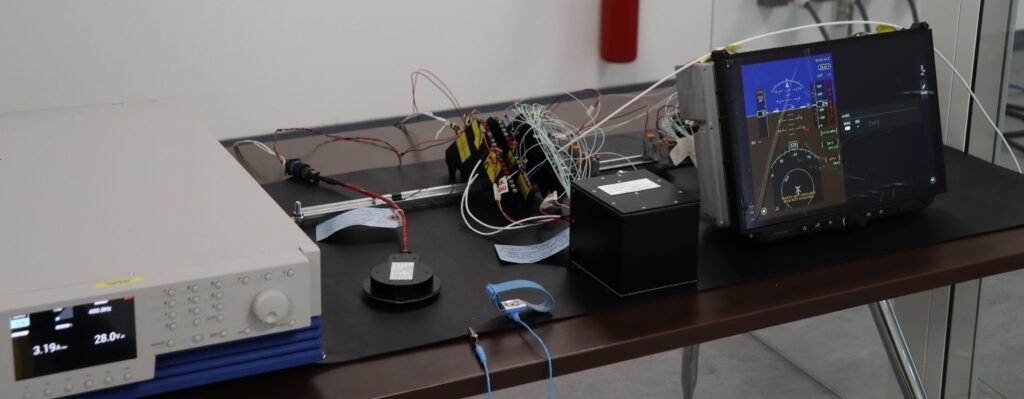
FLYING WHALES partners with Chantiers Chibougamau
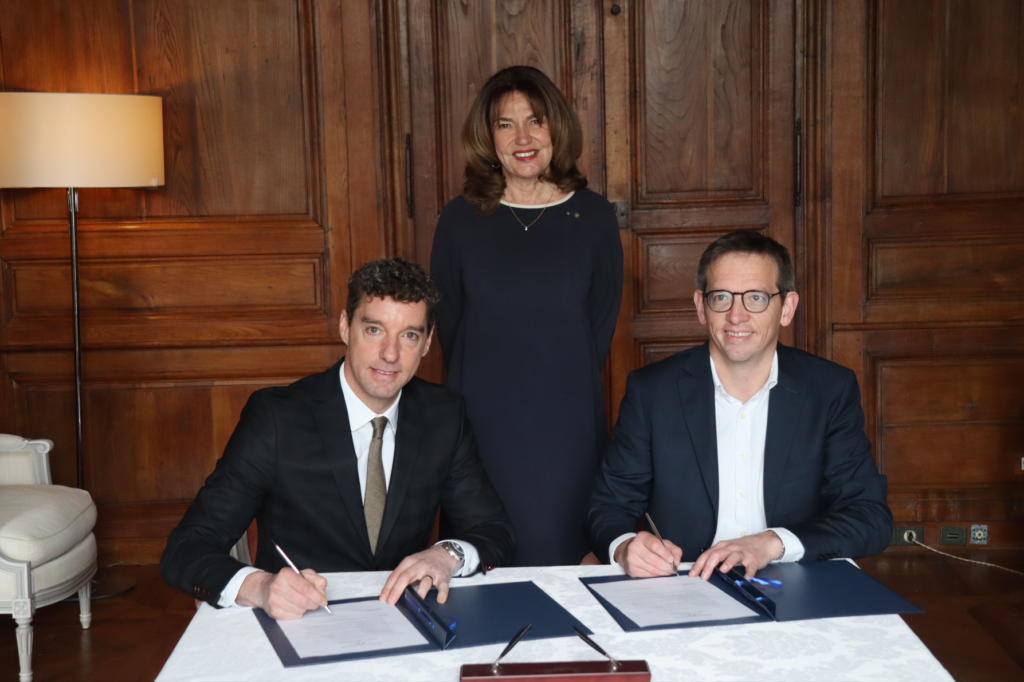
FLYING WHALES is pleased to partner with Chantiers Chibougamau for the transportation of wood in Quebec.
This partnership, signed during an official meeting at the Délégation générale du Québec in Paris, is designed to establish the foundations of a collaboration and integrate airship transport into the logistical solutions of the manufacturer.
Chantiers Chibougamau is a key player in Quebec’s wood processing industry. To limit its impact on ecosystems and biodiversity, the fundamentally innovative company is designing new transport schemes using the LCA60T airship.
The transport of raw materials between its factories and of large-scale prefabricated wood elements is considered. In addition, FLYING WHALES is exploring the use of Chantiers Chibougamau’s Nordic carbon-negative solid wood materials for the construction of its infrastructures on North American soil.
Travel in Quebec

At the beginning of April, FLYING WHALES travelled to Quebec to make progress on the choice of setting up our Canadian plant via our subsidiary, FLYING WHALES QUEBEC. They met the mayors of several target cities, as well as Quebec’s Minister of the Economy, Innovation and Energy, Pierre Fitzgibbon, and Canada’s Minister of Innovation, Science and Industry, François-Philippe Champagne.
During their stay, the teams met with the authorities of Sherbrooke and Trois-Rivières, two of the three cities competing to host the plant.
They also met our technical partners, who are helping to design the LCA60T: Delastek, which is developing the cockpit, Pratt & Whitney, responsible for the design, manufacture and maintenance of turbines for the propulsion system and Honeywell, which produces the generator powering the airship.
Finally, the trip ended with a business meeting with the Port of Montreal and participation in the RAPM (Rencontre Alternée des Premiers Ministres) with Prime Ministers François Legault and Gabriel Attal.
A few weeks earlier, the mayor of Trois-Rivières (Quebec), Mr. Jean Lamarche, and his delegation had paid us a visit at our premises in Suresnes.
FLYING WHALES Day 2024

On May 28, the second edition of FLYING WHALES DAY took place at the Trianon Theater in Paris. This uniquely styled annual general meeting invited shareholders, including all employees, public funders, and consortium partners to gather.
FLYING WHALES is an adventure for which 200 passionate employees, based in Suresnes, Bordeaux, and Montreal, work daily. In total, with our partners’ teams, more than 500 people work together to bring about this new mode of transport.
This special moment allowed for sharing the numerous achievements of the past year: the applications that resulted in agreements, the preparatory work for operations including the pilot training school, ongoing tests demonstrating stability during load exchanges, and progress in preparing the manufacturing plant with particular emphasis on minimizing its environmental footprint.
Whether through the various presentations designed to immerse everyone in the present and future of FLYING WHALES or during the cocktail that followed, everyone received the same information, in full transparency.
For that was indeed the goal: all actors contributing to this adventure must understand each other’s stakes to derive the best from them. This is how this project will succeed against the increasingly accelerating American competition.
